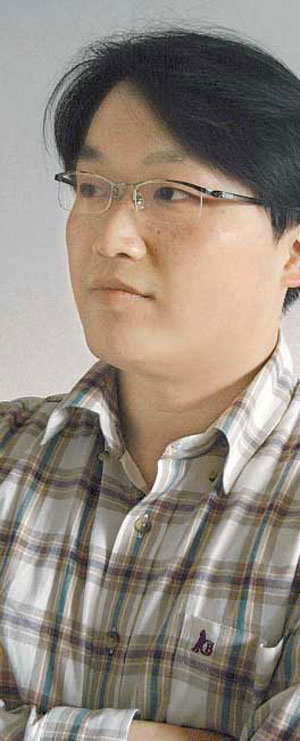King Sejong Collided with Law

It is about King Sejong the Great who refused executing a corrupt official despite the investigators request. Isnt it hard to believe? All in the field of law would be upset, hearing this fact. King Sejong, however, was not a man who enforces the law but a ruler responsible for the management of a nation. That is an important fact.
Prosecutor Seo Jeong-min, 32, had a tender voice on the phone. He said his personality is soft like his voice. It was hard to believe he investigates irregularities of public officials and companies at the Pohang office of the Daegu District Public Prosecutors` Office. He smiled when he said, The days are gone when we forced a confession from people.
He published a book with an interesting title of King Sejong Is Involved in a Corruption Scandal. He reconstructed the corruption case of Cho Mal-saeng (1370-1447), minister of war in the Joseon Dynasty. At that time, the Office of the Inspector General and the Office of the Censor-General insisted executing the minister. But King Sejong wanted to save his life to appoint him to an important position.
Cho was spotted as a corrupt public official who received bribes in 1426 (eighth year of Sejongs reign). The king banished him and ordered a strict and fair investigation. The Office of the Inspector General and the Office of the Censor-General demanded the death penalty. King Sejong, however, refused to execute him, only condemning him in exile. Although officials from the investigation authorities insisted Cho should be put to death, the king didnt step back. Five years later, the corrupt official was appointed to the post of Hamgil (Hamgyeong) provincial governor.
It is difficult to understand King Sejongs decision to save a corrupt public officer in the eyes of modern people. The writer said, The kings decision was right. If I were an investigator at that time, I wouldve demanded the death penalty, too. King Sejong, however, was not a person who enforced the law. He was running a nation. He knew he had a limited amount of human resources, when the Joseon Dynasty didnt get a firm ground yet.
Seo, however, emphasized that the king didnt ignore legalism. Although he didnt execute him, he didnt reverse the judgment of the investigators.
When Cho claimed his innocence after being pardoned, the king didnt accept his claim. But when his ministers tried to prevent Chos son from becoming a public official, he stopped the ministers movement. The writer thinks that the king did this to prevent his subjects from making ill use of corruption cases.
Seo is a Ph.D. candidate studying the history of law at the graduate school of Seoul National University. When asked whether it was too burdensome to write a book, while working at the same time, he said, I often wanted to know what kind of legal devices were used in the past as my job is to clear up false allegations and pursue the truth. Writing this book actually helped me, because the wisdom I got from writing this book helped me doing prosecutors work.
zeitung@donga.com







